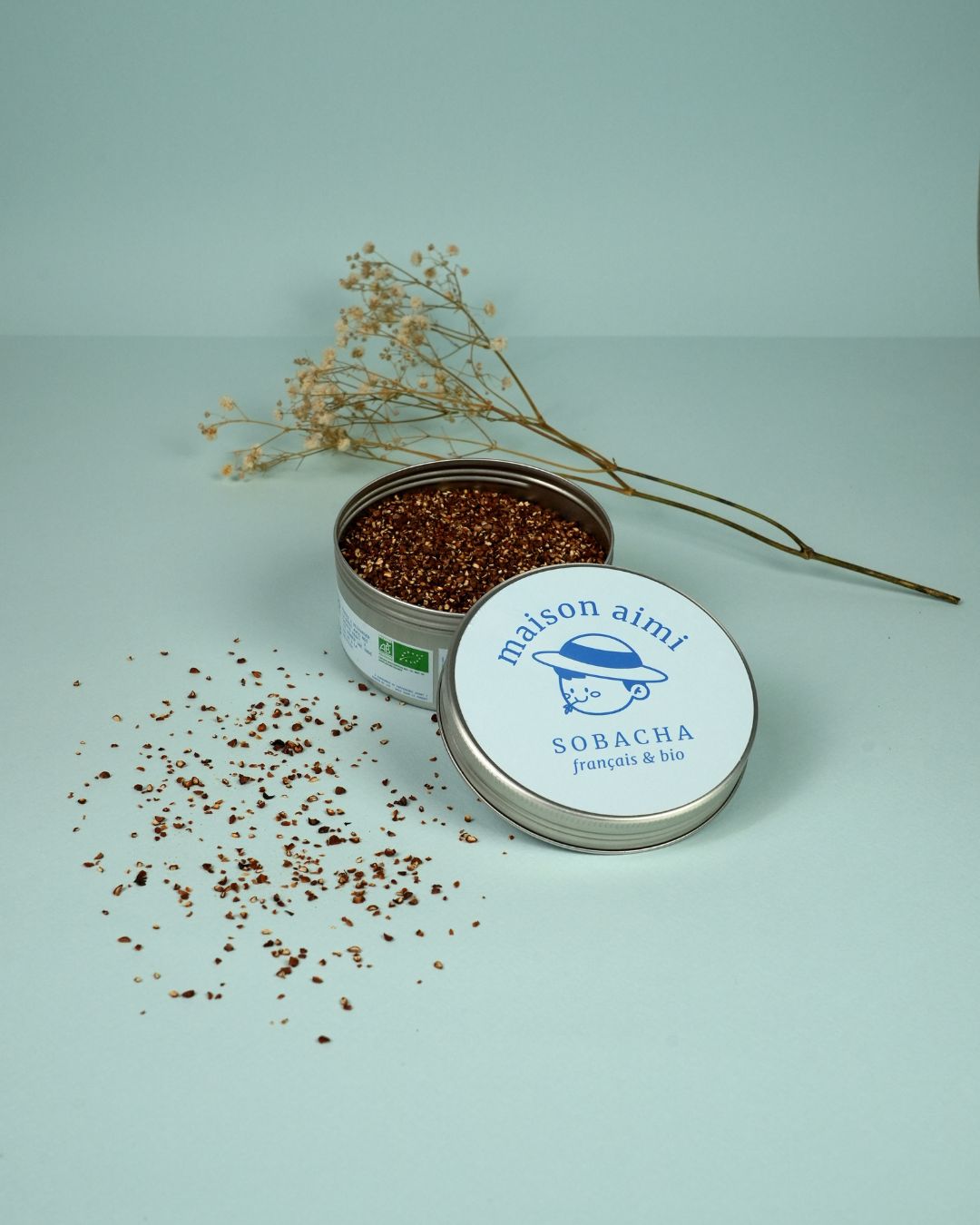Caffeine: our advice to avoid the negative effects

Boost, energy, increased productivity: while the positive effects of caffeine are well known, its negative effects are less well known. At most, we know that we should not abuse it and that it prevents us from sleeping. But what is the reality? What are the negative effects of caffeine and how long do they last? How can we reduce these negative effects? Specializing in the development of caffeine-free drinks from Japan, Maison Aimi presents the negative effects of caffeine. In this article, we answer the questions you asked us the most about caffeine.
Summary
What are the negative effects of caffeine?
What are the long-term negative effects of caffeine?
How long do the negative effects of caffeine last?
How much caffeine intake can cause negative effects?
How to avoid the negative effects of caffeine?
What are the negative effects of caffeine?
When consumed in excess, caffeine can have various negative effects. This notion of excess depends on the person: some people will feel these effects from the first cup of coffee ingested while others can exceed the recommended thresholds without any problem.
Insomnia and sleep disorders
This is the most well-known effect: caffeine can interfere with the ability to fall asleep and stay asleep, which can lead to reduced quality and quantity of sleep.
Anxiety
High doses of caffeine can increase anxiety, restlessness, and nervousness. In people who are particularly sensitive to caffeine, even moderate doses of caffeine can exacerbate these symptoms. If you experience these feelings, don't hesitate to take stock of your caffeine intake and reduce it, as a test.
Digestive problems
Caffeine can cause stomach upset, nausea, and diarrhea. It stimulates the production of stomach acid, which can irritate the stomach lining. This effect is amplified 1) if you are fasting and 2) if you consume caffeine through beverages such as coffee which also has these properties.
Palpitations and high blood pressure
Caffeine poisoning can cause heart palpitations, increased heart rate, and elevated blood pressure.
Dehydration
Caffeine also has the characteristic of being a diuretic. This means that it increases urine production and can lead to dehydration if the fluids lost are not replaced. This is why it is often recommended not to drink caffeinated beverages if you have a UTI—these drinks tend to increase these symptoms.
Interference with medications
Caffeine may interact with some medications, decreasing their effectiveness or increasing the risk of side effects. Be sure to talk to your doctor to learn about the risks and reduce/stop your consumption if necessary.
Risks during pregnancy and breastfeeding
Too much caffeine consumption during pregnancy can increase the risk of miscarriage, premature birth and low birth weight. During breastfeeding, there is a risk of caffeine dependence for the newborn. The European Food Safety Authority (EFSA) recommends not to exceed the amount of 200 mg of caffeine per day for pregnant and/or breastfeeding people.
Risks for people with type 2 diabetes
Studies suggest that caffeine may affect how the body regulates glucose. This may be a concern for people with type 2 diabetes. Choosing non-caffeinated beverages that are compatible with your diabetes may be beneficial for your condition.
What are the long-term negative effects of caffeine?
For healthy adults, regular or even daily consumption of caffeine can have the negative consequences of caffeine addiction and osteoporosis risks. Regarding the long-term increased cardiac risks of long-term caffeine consumption, studies are mixed.
Dependence and withdrawal syndrome
Regular caffeine consumption can lead to caffeine dependence. However, caffeine dependence is primarily psychosocial, linked to the environment and habits. Indeed, withdrawal symptoms are mild and include headaches, fatigue, irritability and difficulty concentrating. They begin within 24 hours of the last caffeine intake and can last, while diminishing, for about a week.
Risk of osteoporosis
Less well known is that regular and substantial consumption of caffeine (equivalent to or greater than 400 mg of caffeine per day) is accompanied by a risk of osteoporosis, in other words a loss of bone density. Since osteoporosis is one of the symptoms of perimenopause and menopause, the risk increases for people who have gone through menopause.
And the negative effects studied / not confirmed
While caffeine can cause irregular heartbeat when consumed in excess, there is no evidence that it causes cardiovascular disease based on current research and studies.
Furthermore, caffeine is suspected to be carcinogenic, but the results are mixed and contradictory, which does not allow, today, a clear conclusion. Some studies suggest that caffeine could cause cellular alterations and affect the way cells reproduce.
Two unconfirmed negative effects which, if we want to apply the precautionary principle, tend to encourage moderation when it comes to ingesting caffeine.
How long do the negative effects of caffeine last?
Most of the negative effects of caffeine occur within a period of thirty minutes after ingesting caffeine in beverage form to four hours after ingesting caffeine.
In fact, when ingested in the form of a drink, caffeine begins to act on the body within five minutes and is at its highest level in about half an hour. Its level then gradually decreases as the body metabolizes the caffeine. Generally, it takes four hours for half of the caffeine to be ingested (which is why we speak of a caffeine half-life of four hours). The caffeine remaining beyond these four hours disappears little by little, without a specific time frame. It is important to know, however: the body uses all of the ingested caffeine and there is no accumulation of caffeine in the body.
How much caffeine intake can cause negative effects?
The European Food Safety Authority (EFSA) states that a healthy adult should not exceed 400 mg of caffeine per day . This figure represents approximately three cups of filter coffee per day. However, this figure remains theoretical and will not necessarily apply to you: some people who are very sensitive to caffeine or not used to drinking it can in fact feel the effects from the first cup of coffee ingested! We can only recommend that you listen to your body and stop ingesting caffeine from the moment you feel adverse effects.
How to avoid the negative effects of caffeine?
To avoid experiencing the negative effects of caffeine, there's no need to stop drinking all your favorite beverages overnight. Here are our tips for feeling better!
#1 Consume caffeine in moderation
To avoid the negative effects of caffeine, both on a daily basis and in the long term, it is essential to consume it in moderation and to listen to your body and your sensations. We recommend that you follow this recommended maximum of 400 mg of caffeine, or 3-4 cups of filter coffee, so as not to take any risks in the long term. Or even consume less if caffeine has negative effects on you at lower doses.
#2 Be aware of your caffeine consumption
There is caffeine in coffee, of course, but also in tea (it is then called theine), in matcha, in mate, in guarani, in energy drinks but also in chocolate… Yes, caffeine is everywhere! Becoming aware of and calculating your daily caffeine consumption can be an interesting first step to avoid its negative effects.
#3 Avoid association with alcohol
Alcohol tends to amplify the effects of caffeine, especially on the heart: this is why we recommend that you do not combine the two. This means not drinking coffee/caffeinated drinks within four hours of drinking alcohol and avoiding cocktails with caffeinated drinks in the evening.
#4 Find alternatives to caffeinated drinks
Stopping caffeine consumption completely does not seem necessary: the negative effects at small doses are weak, the dependence is psychosocial rather than physical, and the long-term risks of moderate consumption are, according to our current knowledge, limited.
This is why we would rather invite you to continue to drink a little but to reduce your daily consumption, in particular by replacing some of your caffeinated drinks with others, without caffeine.
Here are our favorite caffeine-free alternatives:
- Cereal teas: barley tea and buckwheat tea are two drinks made from the infusion of roasted barley and buckwheat grains, respectively. They do not contain caffeine. Delicious, they can be consumed hot or cold, with or without milk.
- Chicory: Chicory is a drink that originates from northern France and Belgium. The chicory root is dried and ground into a water-soluble powder. The drink that this mixture creates is caffeine-free. Be careful, however, as some chicories are combined with instant coffee and therefore contain caffeine.
- Rooibos: Rooibos is a drink originating from South Africa. It is called red tea even though it does not contain theine (another name for caffeine) and it has the particularity of being stronger in taste than classic infusions.
- Carob: The carob tree is a Mediterranean tree whose fruits, carobs, are legumes. The latter are dried and ground into powder. Mixed with milk, carob gives a drink similar to chocolate, without caffeine.
The negative effects of caffeine are very different in nature and depend greatly on each consumer. Being aware of your caffeine consumption, knowing your body and its reactions, and gradually reducing your caffeine consumption can be interesting to protect yourself from its undesirable effects.


